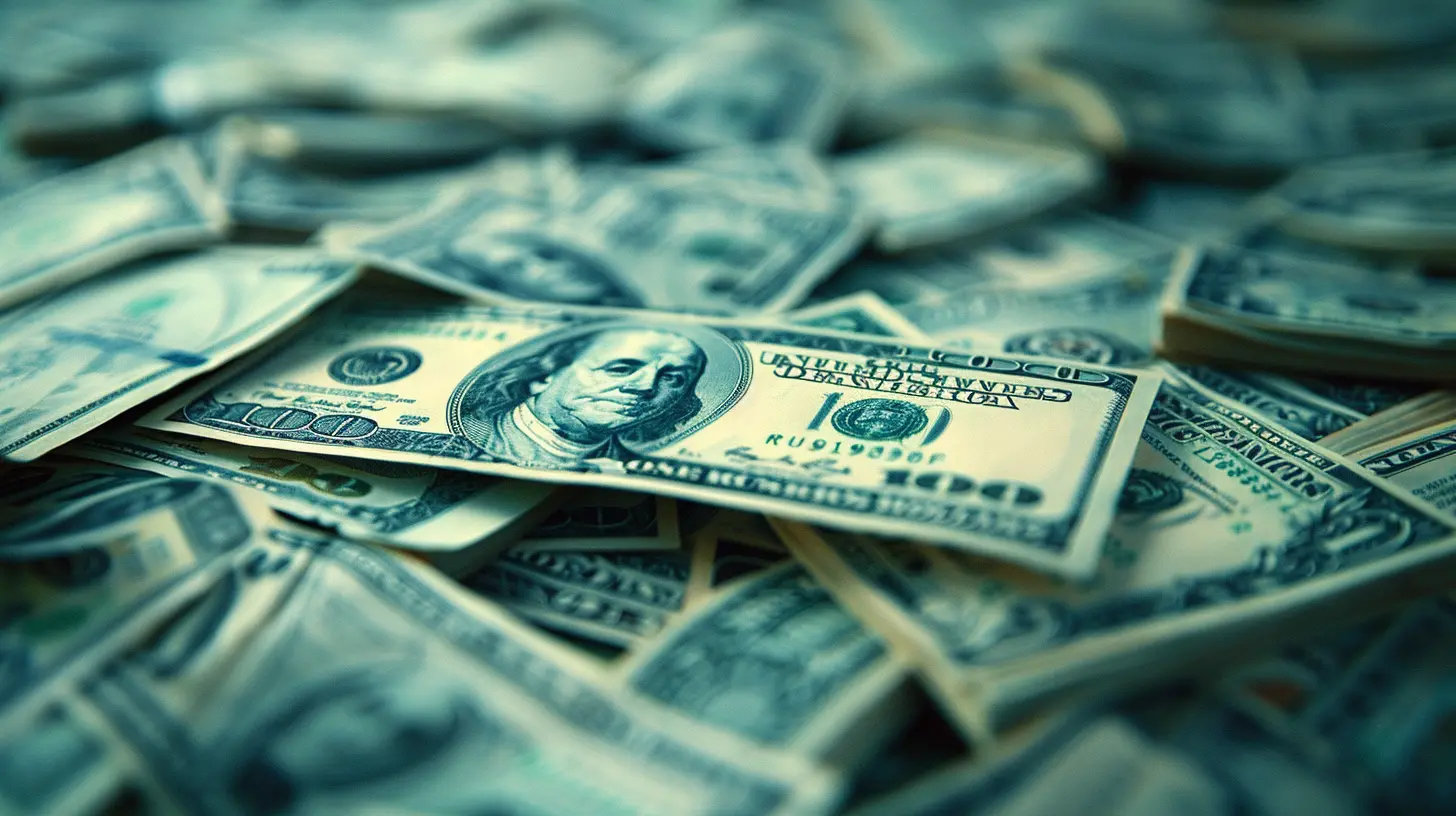Real Assets vs. Paper Assets: What’s Best for Wealth Creation?
19 June 2025
When it comes to building wealth, you’ve got two main categories of investments—real assets and paper assets. It’s kind of like choosing between a solid brick house or a high-rise apartment on paper. Both have their pros and cons, and both can make you rich (or poor) depending on how you play the game.
So, what’s the better choice for long-term wealth creation? Let’s break it down in plain English and get to the bottom of this financial tug-of-war. 
What Are Real Assets?
Real assets are the tangible, touchable, and very real things that hold intrinsic value. If you can kick it, live in it, or watch it grow, chances are it's a real asset. These typically include:- Real estate – Houses, apartments, commercial buildings, farmland.
- Commodities – Gold, silver, oil, natural gas, agricultural products.
- Infrastructure – Roads, bridges, railways, power plants.
Why People Love Real Assets
1. Tangible & Permanent – Unlike stocks that can drop to zero, a piece of land will always be there. (Unless, of course, the earth swallows it, but that’s a different problem.)2. Inflation Hedge – Ever noticed how real estate prices rise over time? That’s inflation working in your favor.
3. Cash Flow Potential – Rental properties and farmland can generate steady income.
4. Scarcity Factor – They’re not making more land (unless Elon Musk finds a way to colonize Mars).
The Downsides of Real Assets
- Illiquidity – Need cash fast? Selling a house isn’t as quick as clicking "sell" on your stock portfolio.- High Upfront Costs – Real assets often require large initial investments.
- Management Hassles – Ever had a tenant who refuses to pay rent? Welcome to the landlord life.

What Are Paper Assets?
On the flip side, paper assets are financial instruments that represent ownership or value on, well, paper (or digital ledgers). These include:- Stocks – Shares in a company.
- Bonds – Loans to governments or corporations with interest payments.
- Mutual Funds & ETFs – Baskets of stocks/bonds managed by professionals.
- Derivatives – Complex financial contracts like options and futures.
Why People Love Paper Assets
1. Liquidity – You can sell a stock and have cash in your account by lunch.2. Low Barrier to Entry – You don’t need $50,000 to start investing in stocks. A few bucks and a brokerage account will do.
3. Diversification – It’s easy to spread your money across industries and geographies.
4. Passive Growth – Long-term stock investors have historically beaten inflation and built significant wealth.
The Downsides of Paper Assets
- Volatility – Stocks can be a rollercoaster. One bad news headline, and boom—your portfolio takes a hit.- Inflation Risk – If your returns don’t beat inflation, you’re actually losing money.
- Psychological Stress – Watching your portfolio drop in value can test your nerves.

Real Assets vs. Paper Assets: Which One Builds Wealth Faster?
Ah, the million-dollar question! The answer? It depends on your strategy, risk tolerance, and patience.Wealth Creation Through Real Assets
Historically, real estate has made more millionaires than any other investment class. Why? It grows in value, provides passive income, and can be leveraged (borrowed against) to expand wealth even further.If you bought a house in a growing city 20 years ago, chances are it’s worth double or triple what you paid for it. And if you rented it out? That’s extra cash flow on top of appreciation.
But there's a catch. Real assets require time, effort, and often debt. If you're not careful, a bad investment in real estate can tie up your money for years.
Wealth Creation Through Paper Assets
On the other hand, the stock market has outperformed real estate over the last century in terms of passive returns. An investment in the S&P 500 index fund decades ago would have grown exponentially, thanks to the magic of compounding returns.Take Warren Buffett, for example. He didn’t buy farmland or gold mines—he bought stocks, reinvested his profits, and is now worth billions.
However, paper assets require emotional resilience—you’ve got to stay invested during market downturns. Those who panic-sell during crashes often miss the biggest gains in the recovery phases. 
The Best Investment Approach? Balance Both!
If history has taught us anything, diversification is key. Instead of choosing between real assets and paper assets, why not have some of both?The Hybrid Strategy for Wealth Creation
1. Use Paper Assets to Build Capital Quickly – Invest in high-growth stocks and ETFs while you're young to take advantage of compounding.2. Reinvest Profits into Real Assets – Once you’ve built enough capital, use it to buy real estate or commodities for stability.
3. Create Multiple Income Streams – Rental income from real estate + dividends from stocks = financial security.
4. Hedge Against Inflation – Keep some money in commodities like gold or silver to protect against economic downturns.
5. Adapt Over Time – As you age, shift from riskier paper assets (stocks) to safer real assets (real estate, bonds).
This mix ensures you get the best of both worlds—high returns from stocks and long-term stability from real estate.
Final Thoughts
So, what’s better for wealth creation—real or paper assets? Both, my friend.Real assets provide tangible, inflation-resistant wealth, but they require work and patience. Paper assets, on the other hand, offer easy entry, liquidity, and potential for massive returns—if you can handle the volatility.
At the end of the day, smart investors know that wealth isn't built by picking one over the other—it's built by creating a balanced portfolio that leverages the unique strengths of both.
As the saying goes, “Don’t put all your eggs in one basket.” Instead, own the farm and some shares in an egg company—because that's how real sustainable wealth is built.
all images in this post were generated using AI tools
Category:
Wealth CreationAuthor:

Uther Graham
Discussion
rate this article
3 comments
Cassidy Weber
Real assets are like your favorite pair of jeans—always in style and never go out of fashion. Paper assets? More like that trendy shirt you wore once and now regret buying!
June 20, 2025 at 11:51 AM

Uther Graham
That's a clever analogy! Real assets do tend to provide lasting value, while paper assets can be more volatile and trend-dependent. It’s all about finding the right balance for your portfolio!
Craig Jennings
Embrace the power of real assets for lasting wealth! While paper assets can offer quick gains, tangible investments build stability and resilience. Diversify wisely, explore opportunities, and let your assets work for you in creating a prosperous future!
June 20, 2025 at 2:19 AM

Uther Graham
Thank you for your insightful comment! Real assets do indeed provide stability and resilience, making them a valuable part of a diversified investment strategy for long-term wealth creation.
Dax Coleman
Investing in real assets like real estate can provide tangible value and hedge against inflation, while paper assets like stocks offer liquidity and growth potential. A balanced portfolio combining both can optimize wealth creation and risk management.
June 19, 2025 at 10:39 AM

Uther Graham
Thank you for your insightful comment! A balanced approach that includes both real and paper assets can indeed enhance wealth creation and manage risk effectively.



